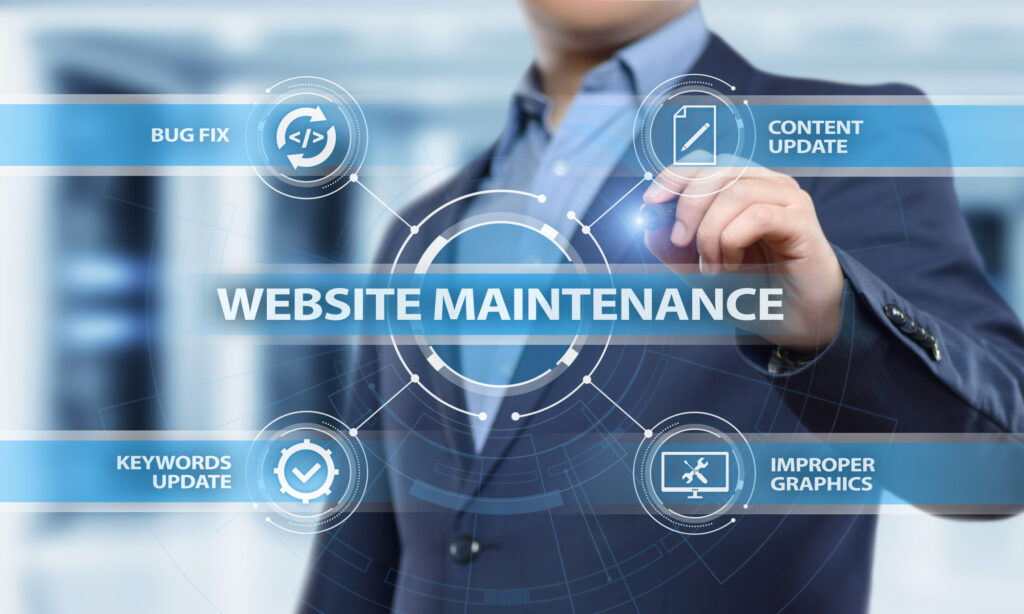5 Website Maintenance Tasks You Should Never Ignore

Maintaining a website is essential to ensure its security, speed, and functionality. Neglecting routine maintenance can lead to vulnerabilities, poor user experience, and lost revenue. By prioritizing a few key tasks, you can keep your website running smoothly and provide a positive experience for visitors. This article will outline five crucial website maintenance tasks you should never ignore and explain why they are vital for long-term success.
1. Regular Software Updates
Websites often run on platforms like WordPress, Joomla, or Drupal. These platforms require regular updates to function properly and remain secure. Updates ensure that your website benefits from the latest features, improved performance, and protection against potential threats.
Why It’s Important:
- Updates fix security vulnerabilities that hackers might exploit.
- Updated software enhances site speed and stability.
- Outdated plugins or themes can cause compatibility issues.
Action Steps:
- Update your CMS (Content Management System) monthly or whenever updates are available.
- Check plugins and themes for updates and install them promptly.
- Backup your website before updating to avoid data loss in case of errors.
2. Perform Website Backups
Backing up your website ensures you can restore it if something goes wrong. Data loss can happen due to hacking, server crashes, or accidental errors. Backups provide a safety net to minimize downtime and prevent permanent data loss.
Why It’s Important:
- Backups protect your content, user data, and configurations.
- They allow quick recovery after issues like cyberattacks or server failures.
Action Steps:
- Use backup plugins or tools like UpdraftPlus or BackupBuddy.
- Store backups in multiple locations, such as the cloud and an external drive.
- Schedule automatic backups weekly or monthly, depending on your site’s activity.
3. Test and Improve Website Speed
Website speed affects user experience and search engine rankings. Slow-loading websites frustrate visitors and lead to higher bounce rates. Regularly testing and optimizing your site’s speed ensures smooth navigation and better performance.
Why It’s Important:
- Faster websites rank higher on search engines.
- Visitors are more likely to stay on and explore a fast website.
- Speed affects conversions and overall satisfaction.
Action Steps:
- Test speed using tools like Google PageSpeed Insights or GTmetrix.
- Compress images and use caching plugins to reduce load times.
- Remove unnecessary scripts, plugins, or bulky code.
4. Check for Broken Links
Broken links lead to pages that no longer exist or fail to load. They harm user experience and negatively impact SEO performance. Regularly scanning your website for broken links ensures visitors can navigate your content without frustration.
Why It’s Important:
- Broken links reduce credibility and trustworthiness.
- They harm search engine rankings by creating crawl errors.
- Users may leave your site if they encounter too many dead links.
Action Steps:
- Use tools like Broken Link Checker or Screaming Frog to identify broken links.
- Replace or remove outdated links immediately.
- Test links after updates or content changes.
5. Review Website Security
Website security should always be a top priority. Cyberattacks can lead to stolen data, defaced pages, or even complete site shutdowns. Regular security checks help you identify and address potential vulnerabilities before they are exploited.
Why It’s Important:
- Prevent hackers from accessing sensitive information.
- Protect your reputation by keeping your site safe for users.
- Avoid penalties from search engines for hosting malware.
Action Steps:
- Install a security plugin like Wordfence or Sucuri.
- Use SSL (Secure Sockets Layer) to encrypt data transfers.
- Regularly scan for malware or vulnerabilities using tools like SiteLock.
Benefits of Regular Website Maintenance
Performing regular website maintenance keeps your site running smoothly and reduces downtime. It protects your site from security threats and ensures visitors have a positive experience. Websites that are well-maintained perform better in search rankings, build trust with users, and support business growth.
Key Benefits Include:
- Improved security and reduced risk of cyberattacks.
- Enhanced website speed and user satisfaction.
- Better search engine rankings and increased traffic.
FAQs
Why is website maintenance important?
Website maintenance keeps your site secure, functional, and fast. It improves user experience and search engine rankings.
How often should I perform website maintenance tasks?
Perform critical tasks like backups and updates weekly or monthly. Regularly check for broken links and security vulnerabilities.
What tools can I use for website backups?
Popular tools include UpdraftPlus, BackupBuddy, and Jetpack. These tools automate backups and provide restoration options.
How do I check for broken links on my website?
Use tools like Broken Link Checker or Screaming Frog to identify and fix dead links on your site.
What is the role of SSL in website security?
SSL encrypts data transfers, protecting sensitive information like passwords and payment details from hackers.
How can I test my website’s speed?
Use tools like Google PageSpeed Insights, GTmetrix, or Pingdom to test and analyze your website’s loading time.What are the consequences of ignoring website maintenance?
Neglecting maintenance can lead to data loss, security breaches, slower performance, and reduced search rankings